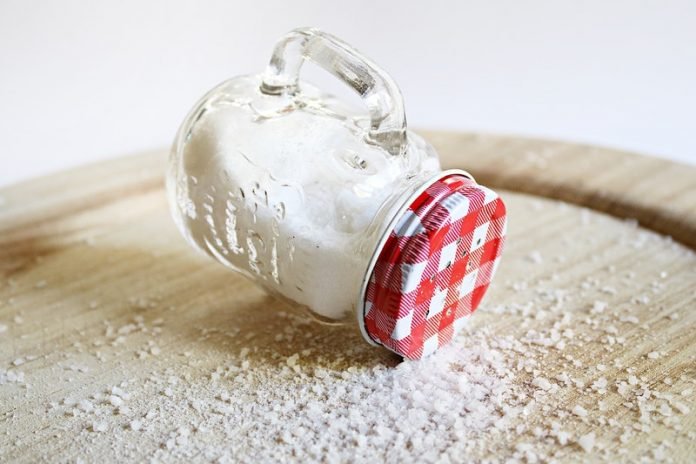
In a new study, researchers found that eating too much salt may increase bloating.
They found that people reported more gastrointestinal bloating when they ate a diet high in salt.
The research was led by a team from the Johns Hopkins Bloomberg School of Public Health.
Bloating is estimated to affect up to a third of U.S. adults overall, and more than 90% of those with irritable bowel syndrome.
Bloating features a buildup of excess gas in the gut. The production of gas can be attributed to gas-producing gut bacteria breaking down fiber.
There is also some evidence that sodium can stimulate bloating.
In the study, the team re-analyzed data from a large clinical trial—the Dietary Approaches to Stop Hypertension-Sodium trial (DASH-Sodium)—conducted two decades ago.
They found that high sodium intake increased bloating among participants.
In addition, a high-fiber DASH diet increased bloating compared to a low-fiber control diet.
The team says that the key information of the study is that reducing sodium can be an effective way to reduce bloating—and in particular may be able to help people maintain a healthy, high-fiber diet.
How sodium causes bloating is still being studied. Salt causes water retention, and that may be one factor.
The team is now researching how bloating is affected by the major dietary macronutrients: protein, carbs, and fat.
The study is the first to examine sodium as a cause of bloating in the context of low- and high-fiber diets.
One author of the study is Noel Mueller, Ph.D., MPH, an assistant professor in the Department of Epidemiology at the Bloomberg School.
The study is published in the American Journal of Gastroenterology.
Copyright © 2019 Knowridge Science Report. All rights reserved.



